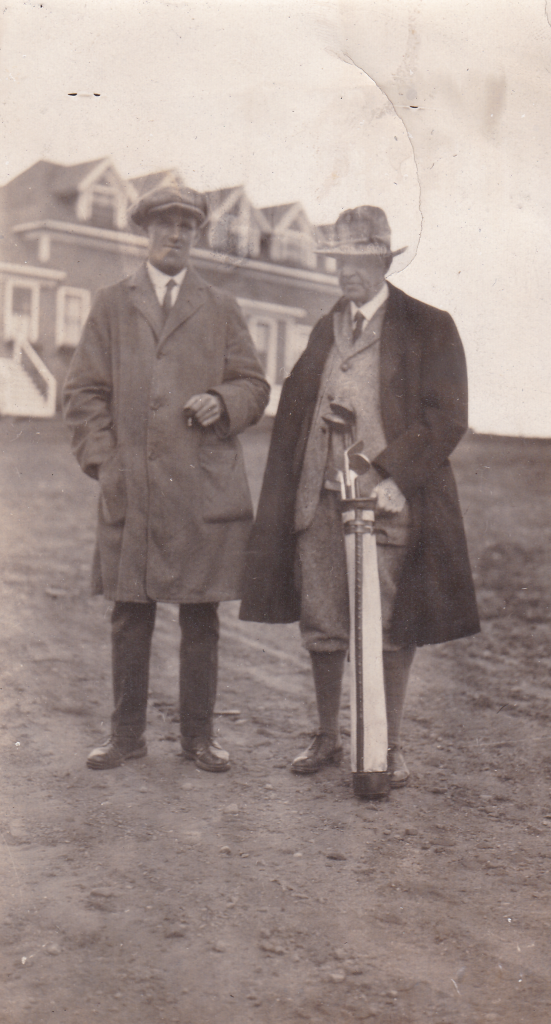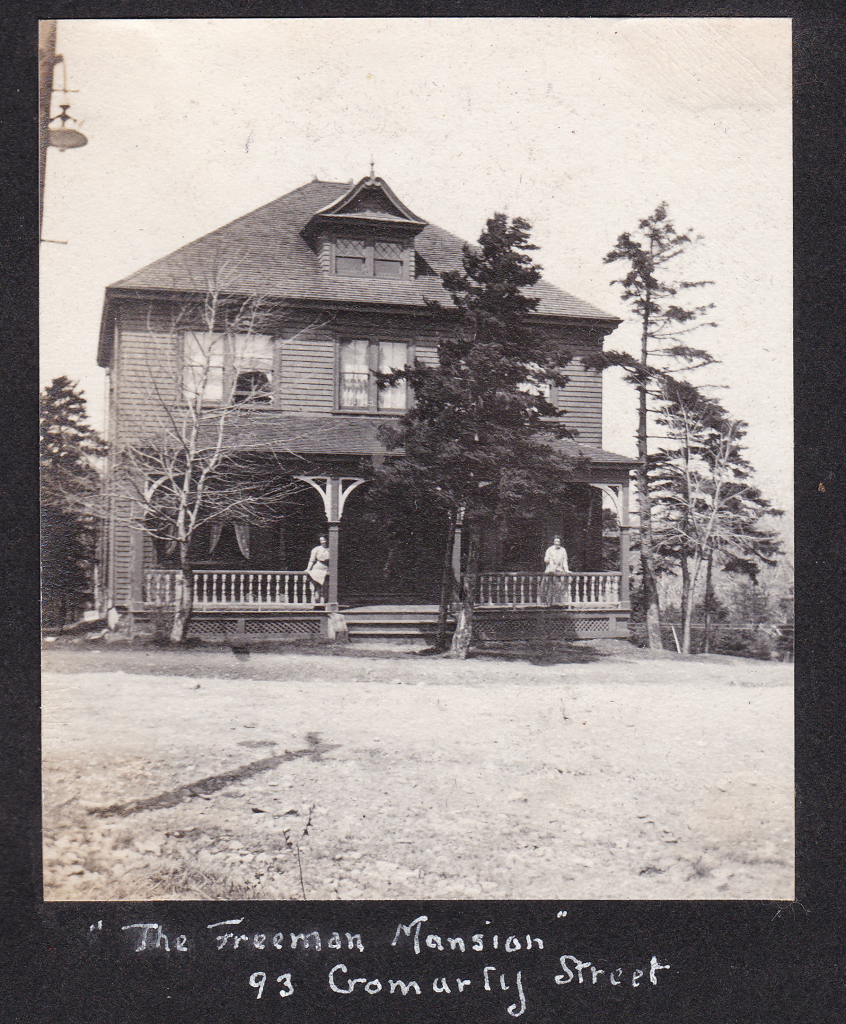Life in Sydney
Living Conditions
Writing in October of 1912 Freeman stated that, “The increased cost of living, due not only to the higher price for foodstuffs , but also to the high price of rent and clothing, makes this city one of, if not the most expensive place to live in all of Eastern Canada.” Throughout his time in Sydney, Freeman often lamented how expensive things were. An automobile cost 25% to 40% more here than in the United States. Clothing and food were also more expensive.
One of the major challenges he faced when moving to Sydney was finding a suitable house to rent. In May 1913 he wrote that, “It is not easy, though possible to rent a house or apartment suitable for a Consul with a family.” At that time in Sydney, according to the city’s Board of Trade, there were over 100 families waiting for tenements in order to move into Sydney. When he and his family arrived on November 19, 1911, they rented rooms in a hotel for six months. On May 1, 1912, they moved into their rented house at 93 Cromarty Street in Sydney.
In 1920, he writes, “A new Consul coming to Sydney at the present time would find it very difficult to find a dwelling of any kind and an impossibility to secure a house at all in keeping with his position as representative of the United States. Desirable real estate has more than doubled in price in the last four years, and vacant houses are not to be found.” It was easier for a single consul to find accommodations at one of the hotels at the regular rates.
In 1919-20, Freeman was assigned to the Consular office in Halifax for 7 months. Upon his return to Sydney, he and Susan stayed with their daughter Harriet and her husband C.S Jamieson at 536 Charlotte Street.
Social Life
Like many men of his generation and in his profession, Charles Freeman and his family often socialized with the leading members of the community. At that time, there were many forms of recreation in Sydney. Gentlemen could partake in fishing, hunting, yachting and various other athletic sports. There were also concerts, lectures, church socials, house-parties, dancing, and picture shows. Freeman and his family participated in many of these.

Charles Freeman spent most of his free time with his family. They often went on automobile trips around Cape Breton to places such as Cheitcamp, the Cabot Trail, Baddeck, Louisbourg and Port Hawkesbury. During his annual leave, he and his family frequently returned to New England to visit family and friends.
Freeman was a member of the Royal Cape Breton Yacht Club that opened in 1903. Yachting was a very popular activity in Sydney. According to Freeman it was also a social club, and to join you needed to pay a $50.00 initiation fee and yearly dues of $40.00. When you consider that the Annual salary of a skilled tradesman at that time was approximately $900, these dues were significant.
Charles enjoyed golfing at Lingan Golf Club, one of the oldest golf clubs in Canada. The cost of initiation to the Lingan Golf Club was $30.00 and annual dues were $30.00. He was a member of the Sydney Tennis Club, the Sydney Curling Club, and the Sydney Cricket Club. To be a part of these clubs often required a fee, so only men of means could afford to join.
To be considered a respectful member of society in the early 20th Century, certain activities were expected of you. These included attending church and joining charitable clubs that worked toward the creation of a better world and finding solutions for the ills in society. Freeman was a Mason and he and his wife were members of the Order of the Eastern Star, a Masonic appendant body that is open to both men and women. Both of these groups had chapters in Sydney. It was expected that both men and women attend church. The Freemans were members of Sydney’s Anglican Christ Church.
Freeman spent the majority of his time working at the Consulate offices in the original Royal Bank building on Charlotte Street. Until 1917, he spent an average of 7 hours a day working, including Sunday. In 1918, after the U.S. joined World War I, the consulate had so much work to complete that he spent 10 hours a day, seven days a week in the office.
Throughout his time in Sydney, Freeman received several promotions. From 1915-1920 he went from a Consul of class seven to a Consul of class four and his salary jumped from $3000 to $4500 per year.
